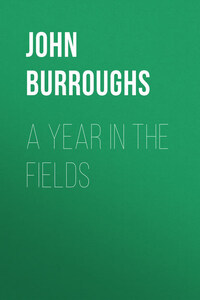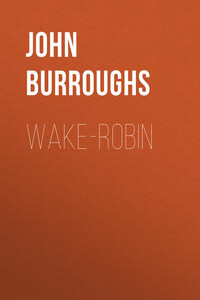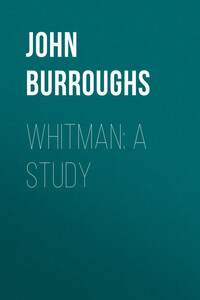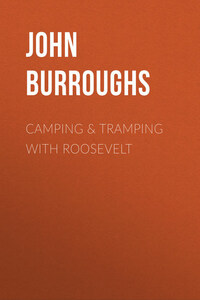JOHN BURROUGHS
A BIOGRAPHICAL SKETCH
BY CLIFTON JOHNSON
In the town of Roxbury, among the western Catskills, was born April 3, 1837, John Burroughs. The house in which he first saw the light was an unpainted, squarish structure, only a single story high, with a big chimney in the middle. This house was removed a few years later, and a better and somewhat larger one, which still stands, was built in its place. The situation is very pleasing. Roundabout is a varied country of heights, dales, woods and pastures, and cultivated fields. The dwelling is in a wide upland hollow that falls away to the east and south into a deep valley, beyond which rise line on line of great mounding hills. These turn blue in the distance and look like immense billows rolling in from a distant ocean.
There were nine children in the Burroughs family, and John was one of the younger members of this numerous household. He was a true country boy, acquainted with all the hard work and all the pleasures of an old-fashioned farm life. His people were poor and he had his own way to make in the world, but the environment was on the whole a salutary one.
He has always had a marked affection for the place of his birth, and he rejoices in the fact that from an eminence near his present home on the Hudson he can see mountains that are visible from his native hills. Two or three times every year he goes back to these hills to renew his youth among the familiar scenes of his boyhood.
"Johnny" Burroughs, as he was known to his home folks and the neighbors, was very like the other youngsters of the region in his interests, his ways, and his work. Yet as compared with them he undoubtedly had a livelier imagination, and things made a keener impression on his mind. In some cases his sensitiveness was more disturbing than gratifying. When his grandfather told "spook" stories to the children gathered around the evening blaze of the kitchen fireplace, John's hair would almost stand on end and he was afraid of every shadow.
He went to school in the little red schoolhouse across the valley, and as he grew older he aspired to attend an academy. But he had to make the opportunity for himself, and only succeeded in doing so at the age of seventeen, when he raised the needful money by six months of teaching. This enabled him in the autumn of 1854 to enter the Heading Literary Institute at Ashland. He found the life there enjoyable, but his funds ran low by spring and he was obliged to return to the farm. Until September he labored among his native fields, then took up teaching again. When pay day came he set off for a seminary of some note at Cooperstown, where a single term brought his student days forever to a close, and after another period of farm work at home he borrowed a small sum of money and journeyed to Illinois. Near Freeport he secured a school at forty dollars a month, which was much more than he could have earned in the East. Yet he gave up his position at the end of six months. "I came back," he says, "because of 'the girl I left behind me'; and it was pretty hard to stay even as long as I did."
Soon afterward he married. His total capital at the time was fifty dollars, a sum which was reduced one fifth by the wedding expenses. For several years he continued to teach, and at the age of twenty-five we find him in charge of a school near West Point. Up to this time his interest in nature and his aptitude for observation lay dormant. But now it was awakened by reading a volume of Audubon which chanced to fall into his hands. That was a revelation, and he went to the woods with entirely new interest and enthusiasm. He began at once to get acquainted with the birds, his vision grew keen and alert, and birds he had passed by before, he now saw at once.
Meanwhile the Civil War was going on, and it aroused in Burroughs a strong desire to enlist. He visited Washington to get a closer view of army life, but what he saw of it rather damped his military ardor. It seemed to him that the men were driven about and herded like cattle; and when a peaceful position in the Treasury Department was offered him he accepted it, and for nine years was a Government clerk.
At the Treasury he guarded a vault and kept a record of the money that went in or out. The duties were not arduous, and in his long intervals of leisure his mind wandered far afield. It dwelt on the charm of flitting wings and bird melodies, on the pleasures of rambling along country roads and into the woodlands; and, sitting before the Treasury vault, at a high desk and facing an iron wall he began to write. There was no need for notes. His memory was all-sufficient, and the result was the essays which make "Wake-Robin," – his first book.
By 1873 Burroughs had had enough of the routine of a Government clerkship, and he resigned to become the receiver of a bank in Middletown, New York. Later he accepted a position as bank examiner in the eastern part of the State. But his longing to return to the soil was growing apace, and presently he bought a little farm on the west shore of the Hudson. He at once erected a substantial stone house and started orchards and vineyards, yet it was not until 1885 that he felt he could relinquish his Government position and dwell on his own land with the assurance of a safe support.














